(Part 2) Best differential equations books according to redditors
We found 386 Reddit comments discussing the best differential equations books. We ranked the 165 resulting products by number of redditors who mentioned them. Here are the products ranked 21-40. You can also go back to the previous section.


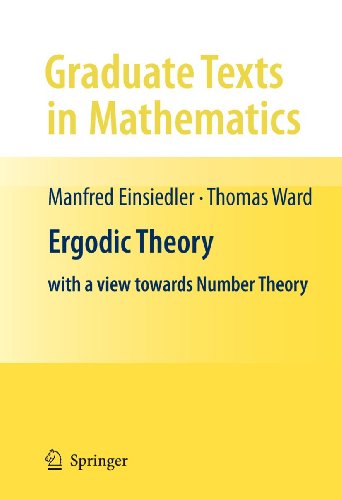
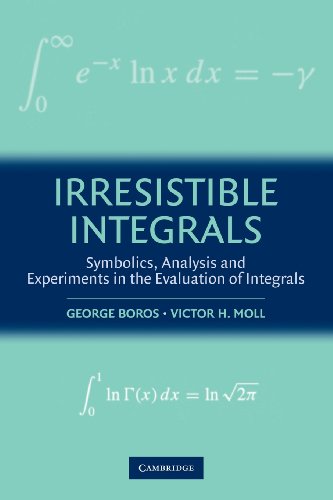

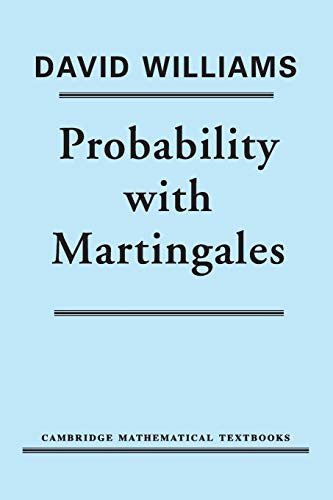
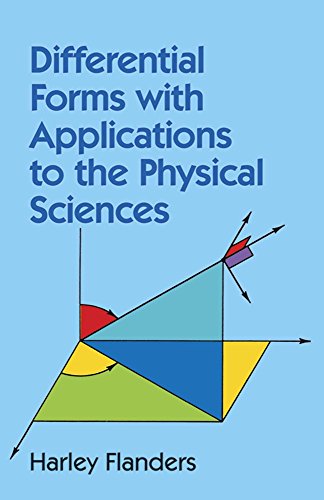






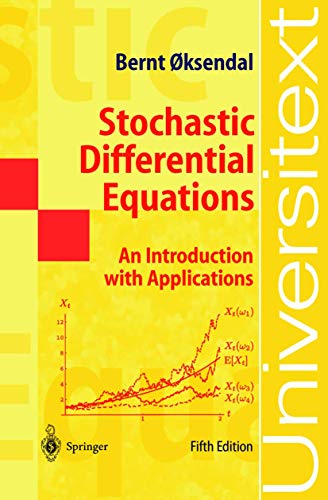
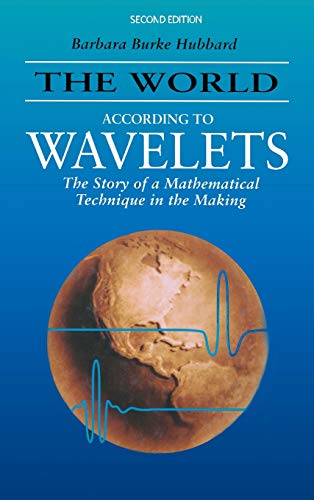
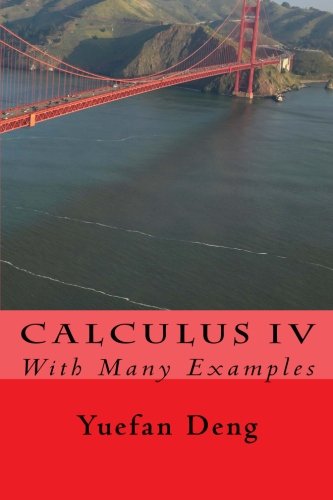

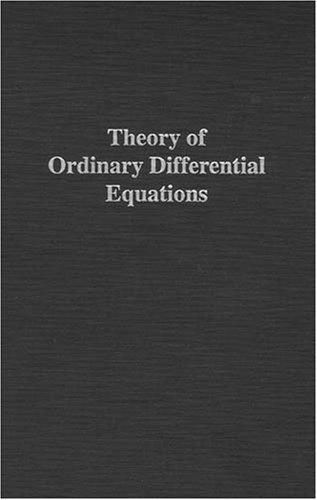


The best differential equations book that I have used was my first ODE course in Undergrad, by Blanchard, Hall, and Delaney. It was a textbook that didn't take a lot of time going into the solutions of ODEs, but the modeling and interpretation aspect much more. The book treats you like a human too and it reads so well. Highly suggest it.
If you want to learn a modern (i.e., dynamical systems) approach, try Hirsch, Smale and Devaney for an intro-level book and Guckenheimer and Holmes for more advanced topics.
> a more Bourbaki-like approach
Unless you already have a lot of exposure to working with specific problems and examples in ODEs, it's much better to start with a well-motivated book with a lot of interesting examples instead of a dry, proof-theorem style book. I know it's tempting as a budding mathematician to have the "we are doing mathematics here after all" attitude and scoff at less-than-rigorous approaches, but you're really not doing yourself any favors. In light of that, I highly recommend starting with Strogatz which is my favorite math book of all time, and I'm not alone in that sentiment.
Irresistible Integrals?
---
Anyway, this one suggests the substitution u=1/x, from which du=-1/x^(2) dx, so 1/x dx = -1/u du, and the limits become 3 to 1/3, and the entire integral becomes int(sin(1/u)/(u*(sin(u)+sin(1/u))),u,1/3,3).
Then re-labelling the dummy variable and adding the two integrals yields int((sin(x)+sin(1/x))/(x*(sin(x)+sin(1/x))),x,1/3,3)=int(1/x,x,1/3,3)=2ln(3), but that's twice the value of the integral, so the original integral is ln(3).
The obvious generalization is that for a>0, int(sin(x)/((sin(x)+sin(1/x))x),x,1/a,a)=ln(a). (The less obvious thing is that the integral only converges if a is within a certain fairly small interval.)
---
Another way to evaluate this is with the substitution x=e^(t), from which dx=e^(t) dt, so 1/x dx=dt, and the limits become -ln(3) to ln(3): int(sin(e^(t))/(sin(e^(t))+sin(e^(-t))),t,-ln(3),ln(3)). Then another substitution, t=-u, from which dt=-du and the limits become ln(3) to -ln(3), yields int(sin(e^(-u))/(sin(e^(u))+sin(e^(-u))),u,-ln(3),ln(3)); adding the two integrals (after re-labelling) yields int(1,t,-ln(3),ln(3))=2ln(3), which is twice the original integral, so the integral is ln(3).
I want to pay someone else to write the following book. And if someone else won't write it, maybe I will.
Applied Mathematics for Economists (max 700 pages)
aka Simon and Blume, but more mature, more compact, more focused.
Chapters:
Prerequisite: Calculus I-II are assumed.
Idea: Calculus III and linear algebra are developed in the first three chapters, with special emphasis on applications to economics. The fourth chapter covers advanced material in linear algebra and even touches on numerical issues. The fifth chapter develops optimization, both static and dynamic, in discrete and continuous time, with applications to economics throughout. The sixth chapter develops the complex variable theory that you need to do proper time-series analysis.
Maybe sneak a chapter on analysis and topology in there. Maybe cut the optimization chapter into two or three pieces.
The point of the book is to put all of the applied math that you'll actually use on a day-to-day basis in a single, relatively brief textbook. I think it can be done in less than 700 pages. Kaplan crammed all of advanced calculus for physics into 700 pages, so surely it can be done for economics.
What isn't here: There is a market for books on advanced calculus. However, they are all geared towards engineering and physics students. They have a ton of material on differential equations and vector theory that are irrelevant for economists. So I cut all of those bits out and replace them with additional material on matrix analysis and optimization. Basically, I trade the theorems of Green, Gauss, and Stokes for the theorems of Lagrange, Hamilton, and Bellman. It's a reasonable tradeoff. I also throw away the (i,j,k) notation and spend more time on least squares, which would be brought back to its proper home in linear algebra.
I have deliberately left out a detailed treatment of probability and statistics, as they could get their own book (of about 500 pages). I have left out a detailed treatment of numerical methods because they could get their own book as well.
Where are you in economics right now? Undergraduate? Graduate?
Advanced mathematics appears everywhere in economics, though your mileage may vary depending on your definition of "advanced". As a mathematician, I suspect that quantitative finance contains the most advanced mathematics, since in modern mathematics research the majority of interaction with economics is through quantitative finance. But unless you plan on doing the most advanced math, there's more than enough advanced math in non-finance economics to keep you interested.
Generally speaking, professional economists build up some skill in real and functional analysis, as well as a variety of other skills like optimization, stochastics, and PDEs, depending on their specific research interests. These are all graduate-level math topics, so I'd consider them reasonably advanced. Take a look into econ PhD prelim coursework. When I took the sequence, we used the texts Microeconomic Theory by Mas-Colell-Whinston-Green, Recursive Macroeconomic Theory by Ljungqvist and Sargent, and Econometrics by Hayashi. I think they're good springboards for you to evaluate the math in higher economics.
In quantitative finance, I'd maybe start by checking out Portfolio Risk Analysis by Connor, Goldberg, and Korajczyk, then if you're still interested, I'd pick up measure-theoretic probability. I recommend Probability with Martingales by Williams. Once you're comfortable with measure theory, look through Stochastic Calculus and Financial Applications by Steele. You'll very quickly enter the area of research mathematics while studying quantitative finance, e.g. jump-diffusion models and Levy processes appear in the pricing of exotic derivatives, and they're heavily studied by even pure mathematicians.
It is hard to provide a "comprehensive" view, because there's so much disperate material in so many different fields that draw upon probability theory.
Feller is an approachable classic that covers all of the main results in traditional probability theory. It certainly feels a little dated, but it is full of the deep central limit insights that are rarely explained in full in other texts. Feller is rigorous, but keeps applications at the center of the discussion, and doesn't dwell too much on the measure-theoretical / axiomatic side of things. If you are more interested in the modern mathematical theory of probability, try Probability with Martingales.
On the other hand, if you don't care at all about abstract mathematical insights, and just want to be able to use probabilty theory directly for every-day applications, then I would skip both of the above, and look into Bayesian probabilistic modelling. Try Gelman, et. al..
Of course, there's also machine learning. It draws on a lot of probability theory, but often teaches it in a very different way to a traditional probability class. For a start, there is much more emphasis on multivariate models, so linear algebra is much more central. (Bishop is a good text).
For undergrad probability, Pitman's book or Ross's two books here and here.
For graduate probability, Billingsley (h/t /u/DCI_John_Luther), Williams or Durrett.
Some books that are helpful are (in order of increasing reading difficulty) Inside Interesting Integrals, Irresistible Integrals: Symbolics, Analysis And Experiments In The Evaluation Of Integrals, (Almost) Impossible Integrals, Sums, and Series.
My biggest piece of advice is that there many fantastic resources online to learn these topics. Most of the integration techniques I've picked up come from browsing forums and looking for pdf documents on integration methods and related topics (special functions, contour integration). You can find information on many of the things I list by searching for
[topic X] pdf, and you usually get documents on your chosen topic directly from some professor's homepage, which often leads to more documents on similar topics. 
Here's a list of things you can look for online that I've found useful in learning advanced integration methods. I've listed quite a bit, so kind of just pick and choose from it, or maybe use it to gain a sense of direction in what to look out for or be mindful of when integrating.
•You can browse some fantastic examples of difficult integrals on math.se. In addition to that, you can look at the profiles of top users that commonly answer these questions; on their profiles they'll have a list of their highest scoring answers, so you can get a feel for how people put different methods together to solve problems.
•Try to learn about various infinite series. Often, you can turn a definite integral into an infinite series that's easier to work with, and provides a better solution path. You can also find many examples of this on math.se.
•Check out the integrals and series forum. It's not an active forum anymore, but it's still loaded with old posts. (You'll need a LaTeX add-on to render the posts there.)
•Look around for free online pdf books on complex analysis and contour integration methods. Application of the residue theorem, Cauchy's integral formula, Cauchy's integral theorem, being able to choose effective integration contours can make easy work of evaluating difficult integrals or summing perplexing infinite series. Be sure to check out Ron Gordon's blog, he's a master at this and is a famous contribute on math.se. The way I first learned contour integration came from this wiki page, so I'd suggest giving it a look.
•Hunt for free pdfs on special functions or books on special functions. Recognizing common special functions is a useful tool and is required for many challenging integrals. Expanding your tool-kit of special functions will also give you more things you can comfortably call "closed forms".
•Study common integral transforms; the Mellin transform, the Laplace transform, and the Fourier transform. And also look for convolution/inversion theorems related to them. Check out Ramanujan's master theorem, this immediately makes a ton of problems work out nicely.
•Check out a method called "differentiation under the integral sign" (sometimes called "Feynman's trick" or "Feynman's method") if you have not already seen it. You can also experiment with integrating under the integral sign.
•Learn about infinite products. These don't come up too often, so they don't warrant as much attention as the other things I list, but every now and then you can turn an integral into one.
You need some grounding in foundational topics like Propositional Logic, Proofs, Sets and Functions for higher math. If you've seen some of that in your Discrete Math class, you can jump straight into Abstract Algebra, Rigorous Linear Algebra (if you know some LA) and even Real Analysis. If thats not the case, the most expository and clearly written book on the above topics I have ever seen is Learning to Reason: An Introduction to Logic, Sets, and Relations by Nancy Rodgers.
Some user friendly books on Real Analysis:
Some user friendly books on Linear/Abstract Algebra:
Topology(even high school students can manage the first two titles):
Some transitional books:
Plus many more- just scour your local library and the internet.
Good Luck, Dude/Dudette.
This is definitely outside of my area of knowledge, but I've heard good things about Oksendal's "Stochastic Differential Equations"
http://www.springer.com/mathematics/analysis/book/978-3-540-04758-2
http://www.amazon.com/Stochastic-Differential-Equations-Introduction-Applications/dp/3540637206
These were the most enlightening for me on their subjects:
Definitely Strogatz! Out of the books I have read, IMO, here is the order of readability: Strogatz, Meiss, Perko, Hartman. The italicized books are the ones I would recommend, but Perko and Hartman are really good too.
Strogatz: http://www.amazon.co.uk/Nonlinear-Dynamics-Chaos-Applications-nonlinearity/dp/0738204536
Meiss: http://www.amazon.co.uk/Differential-Dynamical-Systems-Mathematical-Computation/dp/0898716357/ref=sr_1_1?s=books&ie=UTF8&qid=1369504121&sr=1-1&keywords=meiss+dynamical+systems
Perko: http://www.amazon.co.uk/Differential-Equations-Dynamical-Systems-Mathematics/dp/0387951164/ref=sr_1_1?s=books&ie=UTF8&qid=1369504149&sr=1-1&keywords=perko+dynamical+systems
Hartman: http://www.amazon.co.uk/Ordinary-Differential-Equations-Classics-Mathematics/dp/0898715105/ref=sr_1_1?s=books&ie=UTF8&qid=1369504196&sr=1-1&keywords=hartman+differential+equations
For a historical approach, Bressoud's book on this subject comes to mind. It's not what I learned from, but the book aims to motivate the theory by examining the questions that led to its development. I suspect it might be pretty illuminating.
Try Coddington & Levinson.
These are listed in the order I'd recommend reading them. Also, I've purposely recommended older editions since they're much cheaper and still as good as newer ones. If you want the latest edition of some book, you can search for that and get it.
The Humongous Book of Basic Math and Pre-Algebra Problems https://www.amazon.com/dp/1615640835/ref=cm_sw_r_cp_api_pHZdzbHARBT0A
Intermediate Algebra https://www.amazon.com/dp/0072934735/ref=cm_sw_r_cp_api_UIZdzbVD73KC9
College Algebra https://www.amazon.com/dp/0618643109/ref=cm_sw_r_cp_api_hKZdzb3TPRPH9
Trigonometry (2nd Edition) https://www.amazon.com/dp/032135690X/ref=cm_sw_r_cp_api_eLZdzbXGVGY6P
Reading this whole book from beginning to end will cover calculus 1, 2, and 3.
Calculus: Early Transcendental Functions https://www.amazon.com/dp/0073229733/ref=cm_sw_r_cp_api_PLZdzbW28XVBW
You can do LinAlg concurrently with calculus.
Linear Algebra: A Modern Introduction (Available 2011 Titles Enhanced Web Assign) https://www.amazon.com/dp/0538735457/ref=cm_sw_r_cp_api_dNZdzb7TPVBJJ
You can do this after calculus. Or you can also get a book that's specific to statistics (be sure to get the one requiring calc, as some are made for non-science/eng students and are pretty basic) and then another book specific to probability. This one combines the two.
Probability and Statistics for Engineering and the Sciences https://www.amazon.com/dp/1305251806/ref=cm_sw_r_cp_api_QXZdzb1J095Y1
Differential Equations with Boundary-Value Problems, 8th Edition https://www.amazon.com/dp/1111827060/ref=cm_sw_r_cp_api_sSZdzbDKD0TQ9
After doing all of the above, you'd have the equivalent most engineering majors have to take. You can go further by exploring partial diff EQs, real analysis (which is usually required by math majors for more advanced topics), and an intro to higher math which usually includes logic, set theory, and abstract algebra.
If you want to get into higher math topics you can use this fantastic book on the topic:
This book is also available for free online, but since you won't have internet here's the hard copy.
Book of Proof https://www.amazon.com/dp/0989472108/ref=cm_sw_r_cp_api_MUZdzbP64AWEW
From there you can go on to number theory, combinatorics, graph theory, numerical analysis, higher geometries, algorithms, more in depth in modern algebra, topology and so on. Good luck!
For historical treatments, Bressoud has written textbooks on Real analysis [1] and measure theory/lesbegue integration [2]. There is also a historical treatment of freshman calculus by Toeplitz [3], first published in the 1960s. And Leo Corry's history of Modern Algebra [4] is not really an algebra textbook, but is so interesting I can't help but advertise it!
[1] https://www.amazon.com/Approach-Analysis-Mathematical-Association-Textbooks/dp/0883857472
[2] https://www.amazon.com/Lebesgues-Integration-Mathematical-Association-Textbooks/dp/0521711835
[3] https://www.amazon.com/Calculus-Genetic-Approach-Otto-Toeplitz/dp/0226806685
[4] https://www.amazon.com/Modern-Algebra-Rise-Mathematical-Structures/dp/3764370025
Algebra > Calculus > Linear algebra > ordinary differential equations is the logical progression. Technically you don't need calculus to do or understand linear algebra, but normally that will be the progression if you're a math major.
I no longer have any books on linear algebra or calculus, but I did keep my differential equations book. Check out "Differential Equations" by Blanchard, Devaney, Hall.. Now that I've looked it up and seen the price though... maybe only use it if you can find it in your library, which would be a good bet. It's a good book though, with a fair amount of techniques for solving things on paper and a discussion of how you can solve ODEs numerically.
For differential equations my favorite is Ordinary Differential Equations by V.I. Arnold. A decent intermediate-level book is the one by Birkhoff & Rota. For more advanced treatments try the books by Hartman, Coddington & Levinson or Hale.
I have two recommendations:
http://www.amazon.com/Differential-Equations-Scientists-Engineers-Mathematics/dp/048667620X/
This is an excellent survey that saved my bacon as a physics BS student transitioning to graduate PDE in math. The text is clear and divided into easily consumable lectures. It's also available for $10, a bargain.
http://www.amazon.com/Partial-Differential-Equations-Action-Universitext/dp/8847007518
This is the book I would recommend as a "second pass" through PDE. If you pursue the subject as a graduate student, this will give you information necessary as you transition to applying real analysis and basic functional analysis ideas to solving PDEs. It has a very holistic approach, but uses a lot of ideas and tools that I didn't see until graduate school. It's a great self-study (but definitely higher level than Farlow), and would be an excellent book to convince your graduate level PDE teacher to give a two semester course from(assuming they were of a more cooperative disposition).
Perhaps look at these books?
https://amzn.com/0521796369/
https://amzn.com/1493912763
I looked at the free pages on Amazon and it does seem a bit wordier than the physics books I remember. It could just be the chapter. Maybe it reads like a book; maybe it's incredibly boring :/
If money isn't an issue (or if you're resourceful and internet savvy ;) you can try the book by Serway & Jewett. It's fairly common.
http://www.amazon.com/Physics-Scientists-Engineers-Raymond-Serway/dp/1133947271
As for DE, this book really resonated with me for whatever reason. Your results may vary.
http://www.amazon.com/Course-Differential-Equations-Modeling-Applications/dp/1111827052/ref=sr_1_2?s=books&ie=UTF8&qid=1372632638&sr=1-2&keywords=differential+equations+gill
If your issue is with the technical nature of textbooks in general, then you'll either have to deal with it or look for some books that simplify/summarize the material in some way. The only example I can come up with is:
http://www.amazon.com/Div-Grad-Curl-All-That/dp/0393925161/ref=sr_1_1?s=books&ie=UTF8&qid=1372632816&sr=1-1&keywords=div+grad+curl
Although Div, Grad, Curl, and all That is intended for students in an Electromagnetics course (not Physics 2), it might be helpful. It's an informal overview of Calculus 3 integrals and techniques. The book uses electromagnetism in its examples. I don't think it covers electric circuits, which are a mess of their own. However, there are tons of resources on the internet for circuits. I hope all this was helpful :)
If you're after a solid understanding of math, I recommend learning from actual math books. Keep "mathematical methods" books for reference and review. Some recommendations:
Linear Algebra by Lang
Fundamentals of Complex Analysis by Saff and Snider
Fourier Series and Boundary Value Problems by Brown and Churchill
These books will be significantly more rigorous than Boas, but maybe seeing everything developed carefully will be easier for you to understand.
I don't know where you are in physics, but if you've got any quantum mechanics classes coming up, then I would focus on linear algebra, as it is very important. (And not just the finite-dimensional R^n stuff...make sure you understand vector spaces of possibly infinite dimension over general fields, and C in particular.) For classical mechanics and electromagnetism, vector calculus is probably the most important, but things like Fourier analysis and residue integration can show up anywhere.
For math you're going to need to know calculus, differential equations (partial and ordinary), and linear algebra.
For calculus, you're going to start with learning about differentiating and limits and whatnot. Then you're going to learn about integrating and series. Series is going to seem a little useless at first, but make sure you don't just skim it, because it becomes very important for physics. Once you learn integration, and integration techniques, you're going to want to go learn multi-variable calculus and vector calculus. Personally, this was the hardest thing for me to learn and I still have problems with it.
While you're learning calculus you can do some lower level physics. I personally liked Halliday, Resnik, and Walker, but I've also heard Giancoli is good. These will give you the basic, idealized world physics understandings, and not too much calculus is involved. You will go through mechanics, electromagnetism, thermodynamics, and "modern physics". You're going to go through these subjects again, but don't skip this part of the process, as you will need the grounding for later.
So, now you have the first two years of a physics degree done, it's time for the big boy stuff (that is the thing that separates the physicists from the engineers). You could get a differential equations and linear algebra books, and I highly suggest you do, but you could skip that and learn it from a physics reference book. Boaz will teach you the linear and the diffe q's you will need to know, along with almost every other post-calculus class math concept you will need for physics. I've also heard that Arfken, Weber, and Harris is a good reference book, but I have personally never used it, and I dont' know if it teaches linear and diffe q's. These are pretty much must-haves though, as they go through things like fourier series and calculus of variations (and a lot of other techniques), which are extremely important to know for what is about to come to you in the next paragraph.
Now that you have a solid mathematical basis, you can get deeper into what you learned in Halliday, Resnik, and Walker, or Giancoli, or whatever you used to get you basis down. You're going to do mechanics, E&M, Thermodynamis/Statistical Analysis, and quantum mechanics again! (yippee). These books will go way deeper into theses subjects, and need a lot more rigorous math. They take that you already know the lower-division stuff for granted, so they don't really teach those all that much. They're tough, very tough. Obvioulsy there are other texts you can go to, but these are the one I am most familiar with.
A few notes. These are just the core classes, anybody going through a physics program will also do labs, research, programming, astro, chemistry, biology, engineering, advanced math, and/or a variety of different things to supplement their degree. There a very few physicists that I know who took the exact same route/class.
These books all have practice problems. Do them. You don't learn physics by reading, you learn by doing. You don't have to do every problem, but you should do a fair amount. This means the theory questions and the math heavy questions. Your theory means nothing without the math to back it up.
Lastly, physics is very demanding. In my experience, most physics students have to pretty much dedicate almost all their time to the craft. This is with instructors, ta's, and tutors helping us along the way. When I say all their time, I mean up until at least midnight (often later) studying/doing work. I commend you on wanting to self-teach yourself, but if you want to learn physics, get into a classroom at your local junior college and start there (I think you'll need a half year of calculus though before you can start doing physics). Some of the concepts are hard (very hard) to understand properly, and the internet stops being very useful very quickly. Having an expert to guide you helps a lot.
Good luck on your journey!
Silva's book will seem a bit too easy for you, I'd suggest Einseidler and Ward: https://www.amazon.com/Ergodic-Theory-towards-Graduate-Mathematics/dp/0857290207/
Differential forms with applications in physical sciences. Solid book, cheap, with a lot of time dedicated to concrete computations using forms.
Evans' text is the standard for a first course in analysis of PDEs. For that matter, it could probably be used for a second course, and a special topics course on top of that. It covers a lot of material, and involves a lot of analysis.
I just took AMS 361 last semester. It's a really interesting class, and I really enjoyed it. I haven't taken Calc III, but I've heard it's actually much harder. Also, although the class is generally considered easier than Calc III, it's definitely not a walk in the park. If you're trying to prepare for the class, I don't think there's much you can do other than buying the textbook and starting to study the material on your own. I don't know what textbook your professor requires, but you should get Calculus IV: With Many Examples as a supplement. The Calc IV professor from last semester wrote it, and the actual lessons aren't that great, but the exercises are pretty challenging.
thanks! this is actually really helpful, also is the textbook this: http://www.amazon.com/Calculus-IV-With-Many-Examples/dp/1481918745 ?
i cant seem to find the one listed for the class online so im thinking of getting it from the bookstore
Nice post! For those interested in applications to number theory I can recommend Einsielder's GTM 259, which contains, among other things, a proof of Szemeredi's Theorem using Ergodic Theory. I don't understand it, but if I did it would probably be because of this book.
Has anybody read Nonlinear Oscillations, Dynamical Systems, and Bifurcations of Vector Fields by Holmes and Guckheimer or Introduction to Applied Nonlinear Dynamical Systems and Chaos by Wiggins? If so, could you comment on what prior mathematical knowledge is required? I am an undergraduate doing some applied math research on a chaotic system (double pendulum), and only just beginning to take the more advanced math courses. I am interested in a book on dynamical systems but not sure if I would be able to understand any of it.
I haven't used this book before but perhaps someone else can chime in about it.
It's hard to say, in my day, Advanced Calculus was a class that was taught out of a book like this which basically covered what might be termed "Vector Calculus" i.e. the study of functions f:R^n -->R^m . There would be little, if any, talk of the material in a book like Apostol. That would be reserved for a class called "Real Analysis".
For grad school in physics I'd say that the material in Kaplan (above) would be absolutely essential. I'm not sure how useful the Apostol book is going to be for a physicist, but I'm not a physicist... That said, Spivak, which was mentioned elsewhere, strikes me a being very useful for a physicist and it would be a lot easier to digest after a book like Apostol.
Take everything I say with a pinch of salt, because I'm not a mathematician. If you really like maths, the things I'm recommending might be too basic for you.
Linear algebra will get you a long way. Kuldeep Singh's is the best book I've seen on linear algebra.
Signal processing is key too, and the best thing I've read is The World According to Wavelets. It's ostensibly about wavelet transforms, but it covers Fourier methods too. It's not super technical though.
These days, I'd say you could pursue anything in statistical learning, probability theory, set theory, and graph theory, and it will serve you well. As you probably know, deep learning is eating the world.
FWIW, geophysicist John Stockwell (Colorado Schoool of Mines) said this on a Quora thread:
> It depends on what you want to do. If you want to be a mathematician, then: ordinary differential equations, partial differential equations, linear algebra, real and complex analysis, functional analysis, then what your research entails.
When I WAS first learning PDE I used Paul's Online Notes for help with some of the elementary aspects in an informal manner. The class I took on PDE's used this textbook:
http://www.amazon.com/Fourier-Series-Boundary-Problems-Churchill/dp/007803597X
which I found really helpful and written in an understandable manner. It also offers different branches like the analysis of heat and wave equations as well as the fundamentals like orthogonal sets.
I studied Lebesgue integration from Folland's Real Analysis and I think he does a find job, so I recommend that book as a supplement.
I'm intrigued by this book by Bressoud:
http://www.amazon.com/Lebesgues-Integration-Mathematical-Association-Textbooks/dp/0521711835/
He's a very good author in my experience. You should see if your library has that one.
Well I have some knowledge of measure theory, but very little. Basically the end matter of this book: http://www.amazon.com/Ergodic-Theory-towards-Graduate-Mathematics/dp/0857290207
You may be thinking of Courant's original Differential and Integral Calculus in two volumes. What I have is the solutions to problems from the updated and expanded to about twice the size, Introduction to Calculus and Analysis, in three volumes.
Kaplan's Advanced Calculus might be for you, then. Link. I've found this through more nefarious sources :) PM me if you can't find it then. Just be forewarned that this is a very proof-heavy book!
> College shows you can survive in an office and meet the demands of a variety of different bosses. It shows you can get through high levels of workloads that suck, on time. It also exhibits problem-solving and hones communication skills.
that is what they tell you to sale you on the idea of going. In reality, the best way to get that experience is to WORK. 4 years experience in most cases is way better then 4 years of college.
> How many people truly need to understand differential equations in the jobs that they do? Sales managers? Bankers? The service industry?
not many. This college boys on reddit think that everyone must know them inside and out for every job though and that it's impossible to learn without going to some magical school with magical books that aren't available on amazon
edit: http://www.amazon.com/Stochastic-Differential-Equations-Introduction-Applications/dp/3540637206
Maybe this is too simple for you, but a good layperson's introduction is The World According to Wavelets.
Elementary Differential Equations and Boundary Value Problems by William Boyce
Don't bother getting that edition though. The latest editions are always overpriced and there's not much difference except for a few fixed typos. I used the 8th edition myself, and a quick google showed it was $5-$20 for it on ebay.
I would print out your course objectives page and a copy of your homework, take it to the department chair and ask him to deal with it. You'd never find those problems in an undergrad ODE book.
Looking to get deeper into both as my eventual goal is to learn stochastic DE's.
Thanks for the recommendations. I am looking into Arnold right now. Do you also have an opinion on this book by Blanchard? I've been eyeing that one for some time.
I agree with Khan Academy as well. I used it quite a bit for linear algebra and vector calculus.
For differential equations I thought this was a pretty good book: http://www.amazon.com/Elementary-Differential-Equations-Boundary-Problems/dp/0470458313/ref=sr_1_1?ie=UTF8&qid=1405011761&sr=8-1&keywords=boyce+differential+equations
Also, I recommend taking a look at Schaum's Outlines. I used the outline for discrete mathematics and it was a very nice book!
Hello guys. I'm looking for Differential Equations book. When I search on amazon I got this Nagle and [Zill] (https://www.amazon.com/Differential-Equations-Boundary-Value-Problems-8th/dp/1111827060/ref=sr_1_5?ie=UTF8&qid=1505387954&sr=8-5&keywords=zill+differential+equation) Which one do you think is best for self study?
Differential Forms with Applications to the Physical Sciences by Harley Flanders is pretty good at explaining them, and it's a cheap Dover book to boot.
$3- 9781118147399​
$3- 978-1111827052​
$3- 978-0134688640​
Looking for some easy to find textbooks - thanks in advance!!!
Standard rerference is this. If you done Rudin, this should be possible.
> liner algebra
I always had a more difficult time with liner algebra. Peoples brains are all wired differently. High end calculus is mostly linear algebra. Thanks you Flanders
This is the book I used. http://www.amazon.com/Fourier-Series-Boundary-Problems-Churchill/dp/007803597X